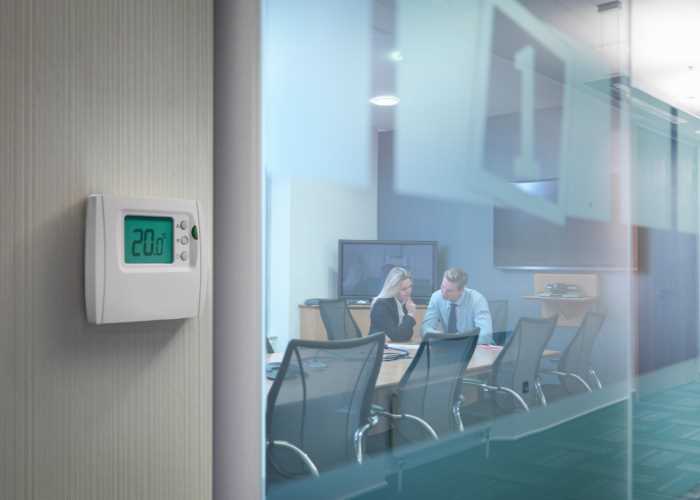When it comes to operating commercial air conditioning systems, energy efficiency is not only beneficial for your bottom line but also for the environment. By optimising energy usage, you can see significant cost savings and reduce the carbon footprint associated with your business.
With that in mind, here’s our 9 top tips on how to reduce the energy consumption of your commercial HVAC system.
Before you can optimise your AC system's energy use, it's crucial to understand your cooling needs. To do this, assess factors such as occupancy levels, equipment, and the layout of your commercial space.
For example, areas with high foot traffic or heat-generating equipment may require more cooling than less frequented spaces. By evaluating these factors, you can determine the ideal temperature range for different areas within your premises, allowing for more precise temperature controls.
Consider conducting an energy audit or consulting with HVAC professionals to help identify areas where energy consumption can be reduced without sacrificing comfort. A professional engineer can also help you determine the appropriate size and capacity of air conditioning units for your cooling needs.

Setting the thermostat to recommended temperatures can significantly impact energy consumption. For cooling efficiency, it’s generally recommended to maintain temperatures between 22-25 ℃. By setting the temperature within this range, you can ensure a comfortable environment while minimising energy waste.
Consider installing programmable or smart thermostats that allow you to schedule temperature adjustments based on occupancy and time of day. For example, you can program the system to raise the temperature during non-business hours or when specific zones are unoccupied.
Dividing your commercial space into different zones enables independent control of cooling in specific areas. This approach allows you to allocate cooling resources more efficiently, directing them where they’re most needed.
Identify areas with distinct cooling requirements - such as open office spaces, conference rooms, and server rooms - and use separate thermostats or HVAC controls for each zone to adjust temperature settings accordingly.
By implementing zoning strategies, you can prioritise cooling in high-traffic or critical areas while minimising energy usage in less-used spaces.
Proper insulation plays a vital role in minimising heat transfer from outside and improving energy efficiency. Insufficient insulation can lead to heat gain during hot weather, causing your air conditioning system to work harder.
Evaluate the insulation in your building and identify areas that may require improvement. Seal gaps around windows and doors, use weatherstripping to prevent air leaks and upgrade insulation materials in walls, ceilings and floors to enhance thermal resistance.
When purchasing or upgrading air conditioning units, look for models with high Seasonal Energy Efficiency Ratio (SEER) and Energy Efficiency Ratio (EER) ratings - the higher the value the greater the efficiency.
Consider advanced features such as variable speed compressors and energy-saving modes that can further enhance the energy efficiency of your air conditioning system. These features adjust cooling output based on demand, saving energy during periods of lower cooling requirements.
Installing occupancy sensors can help optimise energy use by detecting movement in different areas of your commercial space, so place them strategically in areas with varying levels of occupancy, such as meeting rooms and break rooms.
The sensors can communicate with the HVAC system, adjusting temperature settings based on real-time occupancy data. This approach ensures that cooling is provided only where and when it’s needed, minimising energy waste.

Engaging employees in energy-saving practices is crucial for achieving long-term energy efficiency, so educate your staff and encourage their participation in energy-saving efforts.
Provide them with tips such as:
You could even consider organising challenges or reward programs to motivate and recognize individuals or teams that contribute to reducing energy consumption.
Neglecting maintenance can result in reduced efficiency, increased energy consumption, and costly repairs, so it's important to schedule regular maintenance visits from a qualified HVAC professional.
They will clean or replace air filters, check refrigerant levels, inspect coils, and ensure that all components are functioning properly. They’ll also check for leaks, blockages, or any other issues that may hinder the system's efficiency.
Lastly, install energy metres or submeters to monitor the consumption of your air conditioning system, then analyse the data collected to identify periods of high energy usage, anomalies, or inefficient practices.
You can then use this information to fine-tune temperature settings, adjust schedules, or implement further energy-saving measures.
Improving the energy efficiency of your commercial air conditioning system is a wise investment that benefits both your business and the environment. By following the practical tips and strategies outlined here, you can optimise energy use, reduce operating costs, and contribute to a greener future.
If you’re interested in having a new system installed, or upgrading an existing one, we have over 20 years of experience in energy efficient AC design and would be happy to discuss your project requirements.
